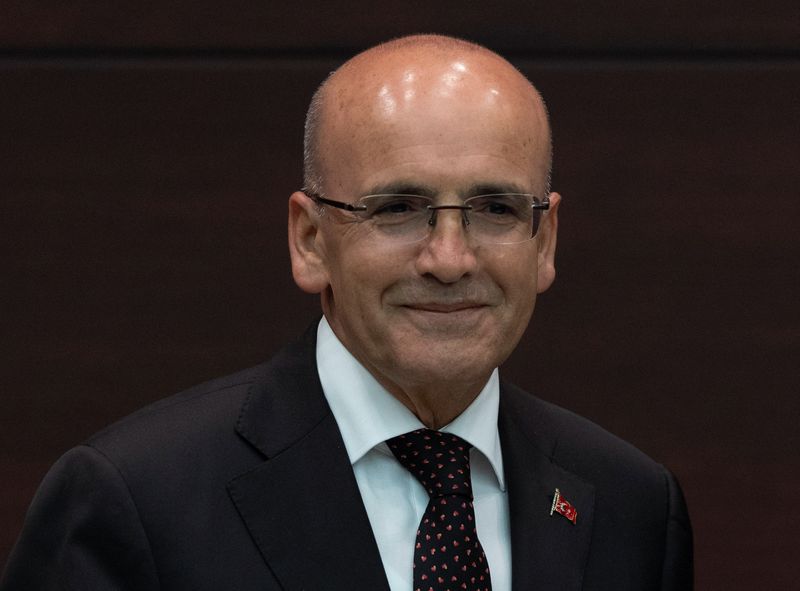
© Reuters. New Treasury and Finance Minister Mehmet Simsek stands during a press conference where Turkish President Tayyip Erdogan announced the new cabinet, in Ankara, Turkey June 3, 2023. REUTERS/Umit Bektas
By Nevzat Devranoglu
ANKARA (Reuters) -Turkey’s newly appointed Finance Minister Mehmet Simsek said on Sunday that the country has no choice but to return to “rational ground” to ensure predictability in the economy.
President Tayyip Erdogan named Simsek to his cabinet on Saturday to tackle Turkey’s cost-of-living crisis and other strains, in a clear sign that his newly elected government would return to more orthodox economic policies.
In a handover ceremony, Simsek said the main goal of the new government will be to increase social welfare.
“Transparency, consistency, predictability and compliance with international norms will be our basic principles in achieving this goal,” Simsek said.
“Turkey has no other choice than to return to a rational ground. A rules-based, predictable Turkish economy will be the key to achieving the desired prosperity.”
Macro-financial stability in an environment of increasing global challenges and geopolitical tensions will be a priority, he said.
“Establishing fiscal discipline and ensuring price stability for sustainable high growth will be our main goals,” he said.
Simsek, who was highly regarded by financial markets when he served as finance minister and then as deputy prime minister between 2009 and 2018, said that lowering Turkey’s soaring inflation to single digits will be another priority.
“It is vital for our country to reduce inflation to single digits again in the medium term, to increase predictability in all areas, and to speed up the structural transformation which will reduce the current account deficit,” he said.
Turkey’s annual consumer price inflation hit a 24-year peak beyond 85% last year, and stood at 44% in April.
Fiscal policies and structural reforms will support Turkey’s central bank to help lowering inflation, Simsek also said.
The central bank’s policy of stabilising the lira sent its net foreign reserves into negative territory last month for the first time since 2002.
The lira hit new all-time lows beyond 20 to the dollar after the May 28 run-off vote in the election. It lost more than 90% of its value in the last decade after a series of crashes, the worst in late 2021.
Goldman Sachs (NYSE:) sees the lira slipping to 28.00 against the dollar in 12 months.







